- Cogmed Working Memory Training and Literacy Development
- Cogmed Requirements
- What you Need
- What is Working Memory?
- Impact of Poor Working Memory
- Cogmed Research
Literacy Care is a Cogmed Qualified Coach along with the The Child Development Network (Cogmed Qualified Practice). We regard Cogmed as the most researched and highest quality working memory training program in the world.
The Cogmed Working Memory Training is a computer based intervention for children, teenagers and adults with attention and other problems caused by poor working memory.
It is an extensively researched program designed to improve working memory through intensive, repeated training. The software adjusts the difficulty level of the training, based on the user’s performance. There are separate products for primary and early high school children, later high school and adults, and preschoolers.
There are a number of prerequisites for successful Cogmed training. The process is always supported by a Cogmed-trained coach, one of the professionals at the CDN or a Literacy Care Clinician. The coach makes sure the user has the right program for the training, and that the timing is right. The coach is responsible for providing the motivation, support, and feedback necessary to get the most out the training.
Cogmed Working Memory Training and Literacy Development
We now know that a child’s (and adult’s) working memory is critical to the development of social, emotional, behavioural, physical and of course academic and scholastic skill development. It is the latter two (academic and scholastic skill) that is important to understand relative to literacy skill recovery.
We also know that children with Learning Disabilities such as Dyslexia usually have below average working memory ability.
The current research on Cogmed (see below) both empirical and clinical research (Clinical Audit) indicates that Cogmed Working Memory Training has the following two positive effects relative to literacy Development in poor readers:
1. Immediate improvements in reading (3+ months) gain after 5 weeks of Cogmed training
2. A ‘steeper’ trajectory of reading improvement during literacy intervention. In other words a greater result in a shorter period of intervention.
These results indicate that one of the significant outcomes of Cogmed Working Memory Training is to ‘neurologically’ prepare the child for better learning. In other words the child becomes a better candidate to engage in Literacy Intervention.
By increasing working memory capacity, Cogmed training builds a foundation for ongoing learning and development. For further information about benefits from using Cogmed and to read about what type of improvements other Cogmed users have experienced, please visit www.cogmed.com/benefits.
Cogmed Requirements
The training is usually done at home, although it may be completed at school with cooperation from school staff. It consists of 25 computerized sessions each about 50 minutes long, 5 sessions per week for 5 weeks. The full program includes:
1. Start-up session at the CDN
2. Five weeks of training with weekly coach calls (you are able to access the Cogmed Training Web to look at your child’s progress during this time)
3. Wrap-up session at the end of the training
4. Six months follow-up visit or interview
At the end of the training you have free access to Cogmed Extension Training if you wish.
What you need
- A child who is motivated to do the work
- An adult who is willing to supervise each session
- A computer with Windows XP or better operating system
- An Internet connection
- A quiet, distraction-free place at home where your child can do the training.
- The time and energy necessary to do the training. If you want, we can provide a letter to your child’s school asking that homework demands be reduced during the training period.
- Rewards for the child after each session, and after each week of training.
What is Working Memory?
Working memory (WM) is the mental workspace where we hold and manipulate information in our mind. This is the information we need in real time as we are engaged in thinking, learning, planning and behavioural self control.
When it comes to behaviour, WM is where we hold the information necessary to ‘think before acting’. In this way we are able to remember rules and consider consequences, so that we can make the best decisions about how we want to behave.
In order to pay attention, WM is necessary for us to remember what we are paying attention to. When distractions come along, we need to be able to process those distractions, yet remember what we should be focusing on.
In the classroom, the types of information held in working memory may be a series of instructions given by the teacher, or the words of a sentence a child is planning to write, whilst thinking about the spelling and punctuation of the words they are actually writing.
The capacity of WM (how much we can hold, remember and manipulate at any time) is different from person to person.
For some children, this capacity may be low. If it is low it can impact on day to day life, as well as learning and development.
Working Memory refers to the brain’s system that not only remembers, but also manipulates this information. An example would be repeating a sequence of remembered numbers backwards but working memory functions are often much more complicated especially in literacy skills such as reading and understanding and spelling while writing.
Executive Function is a term used to refer to a larger system and set of processes involved with attention control, ‘seeing the big picture’ of what is going on, setting goals, making plans, undertaking step by step tasks to achieve those goals, and self-monitoring along the way.
Long Term Memory is very different from Working memory and also Short Term Memory (STM). It refers to our memory of information, events, and procedural memory of how to do things. While STM is based primarily in the frontal lobe of our brain, long term memory is based deep in the brain, particularly our hippocampus.
Impact of Poor Working Memory
When a child has poor working memory, you may notice the following:
In the classroom
- Missing and forgetting verbal instructions
- Easily distracted, especially if the work is not interesting
- Struggling with all the tasks of writing: for example, forgetting about spelling, punctuation, layout and grammar when trying to put together and remember the words and sentences they want to write
- Unable to remember individual sounds in a string of sounds to spell a word even after sounding out the word correctly
- Able only to remember small chunks when copying from the board onto paper
- Struggle with mental arithmetic, and automatic memory of math facts such as times table
- Struggle with problem solving that involves holding information in mind whilst working things out
- Trouble getting started, staying on task through to completion, and self monitoring classroom work
- Trouble learning to read, reading efficiently and comprehending whilst reading
- Trouble planning and efficiently undertaking assignment work, or any other task that needs to be done in a series of steps
- Forgetting books, pencils, homework, clothing
- Disorganised desk
- Trouble doing two things at once, such as listening and taking notes
- When asked to speak, may forget what he/she was going to say
- Trouble integrating new understandings with existing knowledge
- Variability of ability and performance (sometimes the just seem to get it all right)
- Deterioration with fatigue
Around the home
- Unable to remember more than one or two instructions at a time
- Easy distracted, forgets what they are supposed to be doing
- Frustration, anger, poor management of emotional responses to day-to-day tasks
- Untidy bedroom, unable to organise cleaning
- Forgetting to bring required books, homework, clothing home from school
- Trouble doing the series of tasks every morning to get ready for school, even though they have been the same for years
- Of many projects commenced, few completed, even fewer cleaned up afterwards
Social Behaviour
- Impulsivity – failing to adequately ‘think before acting’
- Over time, children with poor WM may struggle to learn mature ways of managing complex social situations, such that their behaviour has an ‘immature’ quality
- Difficulty remembering people’s names
- Interrupting (because they are afraid they may forget what they want to say), having trouble waiting his/her turn
- Being late all the time
- WM problems lead to a situation where children often get into trouble for their behaviour, or fail to achieve academically to the level expected for their intelligence. Over time, this can have a negative impact on how they think about themselves, leading to poor self concept and poor self esteem.
Cogmed Research
This section summarises some of the key research upon which Cogmed is based. Click on the titles to download the full article.
Improvements in Working Memory
Computerized Working Memory Training Improves Function in Adolescents Born at Extremely Low Birth Weight. Gro C. C. Løhaugen, Ida Antonsen, Asta Haberg, Arne Gramstad, Torstein Vik, Ann-Mari Brubakk, and Jon Skranes. The Journal of Pediatrics, December 2010
– Children born prematurely are at higher than normal risk for having problems due to poor Working Memory. This study shows that adolescents who were born prematurely benefited from the Cogmed training.
Academic Outcomes 2 Years After Working Memory Training for Children With Low Working Memory: A Randomized Clinical Trial. Gehan Roberts, MPH, PhD; Jon Quach, PhD; Megan Spencer-Smith, PhD; Peter J. Anderson, PhD; Susan Gathercole, PhD; Lisa Gold, PhD; Kah-Ling Sia; Fiona Mensah, PhD; Field Rickards, PhD; John Ainley, PhD; Melissa Wake, MBChB, MD, FRACP
– The objective of this study was to investigate whether 6 year-old children at risk for academic underachievement, for whom approximately 20-25 hours of formal teaching was substituted with Cogmed working memory training (CWMT), would outperform children receiving formal teaching as usual on measures of academic performance two years following training.
Benefits of a Working Memory Training Program for Inattention in Daily Life: A Systematic Review and Meta-Analysis. Megan Spencer-Smith, Torkel Klingberg.
– Many common disorders across the lifespan feature impaired working memory (WM). Reported benefits of a WM training program include improving inattention in daily life, but this has not been evaluated in a meta-analysis. This study aimed to evaluate whether one WM training method has benefits for inattention in daily life by conducting a systematic review and meta-analysis. The study concluded that enefits of a WM training program generalise to improvements in everyday functioning. Initial evidence shows that the Cogmed method has significant benefits for inattention in daily life with a clinically relevant effect size.
Cognitive Training Enhances Intrinsic Brain Connectivity in Childhood. Duncan E. Astle, Jessica J. Barnes, Kate Baker, Giles L. Colclough, and Mark W. Woolrich.
– In human participants, the intensive practice of particular cognitive activities can induce sustained improvements in cognitive performance, which in some cases transfer to benefits on untrained activities. Despite the growing body of research examining the behavioral effects of cognitive training in children, no studies have explored directly the neural basis of these training effects in a systematic, controlled fashion. Therefore, the impact of training on brain neurophysiology in childhood, and the mechanisms by which benefits may be achieved, are unknown. Here, we apply new methods to examine dynamic neurophysiological connectivity in the context of a randomized trial of adaptive working memory training undertaken in children. After training, connectivity between frontoparietal networks and both lateral occipital complex and inferior temporal cortex was altered. Furthermore, improvements in working memory after training were associated with increased strength of neural connectivity at rest, with the magnitude of these specific neurophysiological changes being mirrored by individual gains in untrained working memory performance.
Neuroplasticity and Cognitive Working Memory Training. Dr Jared Horvath
– Dr Horvath describes working memory as ‘the workbench’ of the mind. It’s distinct from our long term memories. It’s the space where we temporarily hold information for manipulating and processing. We use it to bring in new information to tie to our memories and what we know.
Changes in the Brain
Changes in cortical dopamine D1 receptor binding associated with cognitive training. Fiona McNab, Andrea Varrone, Lars Farde, Aurelija Jucaite, Paulina Bystritsky, Hans Forssberg, Torkel Klingberg Science, February 2009.
– Dopamine is a brain chemical (neurotransmitter) associated with Working Memory function. The medication Ritalin increases levels of dopamine in the frontal lobes. This study demonstrated increases cortical dopamine D1 receptors attributable to Cogmed training.
Research about Other Brain Training
By Contrast, research about other ‘Brain Training’ suggests it is not effective.
Working Memory, and Cogmed in the News
This page provides links to a number of news articles, mainly from US media, about Working Memory, Learning and Cogmed.


